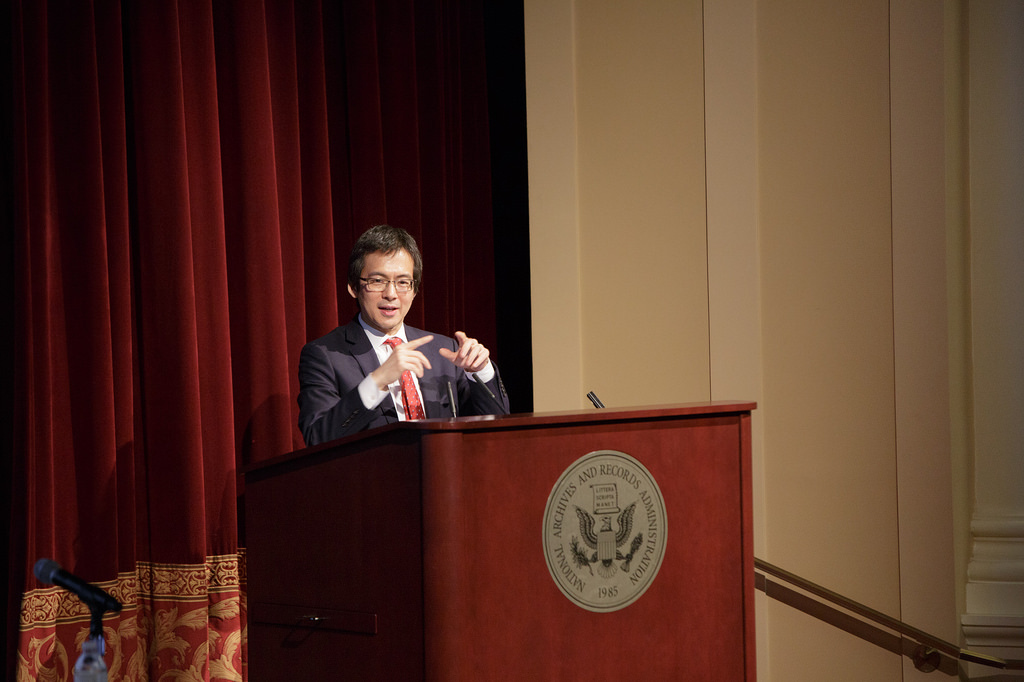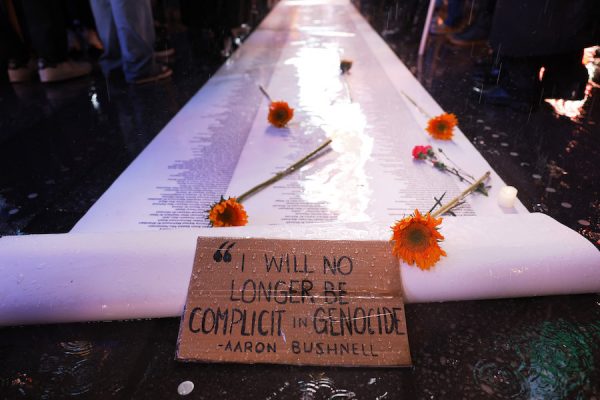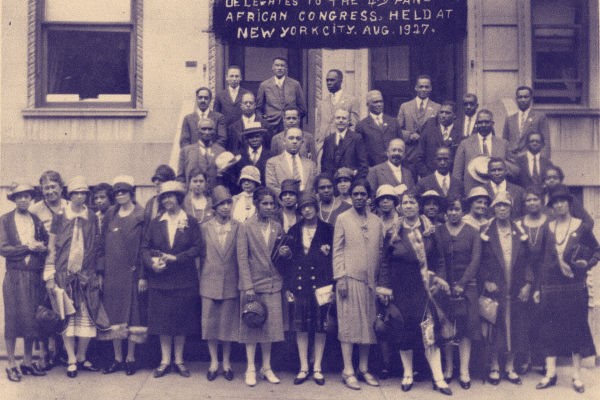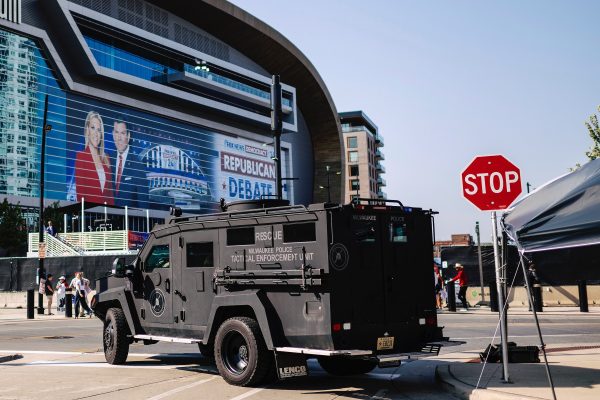Anxieties over the fairness of our elections have only risen since the chad-plagued 2000 contest between George W. Bush and Al Gore. We worry over voter registration fraud, over voting machines that can be hacked without leaving a paper trail, and over minority voters facing discriminatory obstacles at the voting booth. But Harvard Professor of Government and BR contributor Archon Fung has a novel solution: My Fair Election, a crowd-sourcing platform that will enable citizens across the country to rate their voting experiences the way they might a hair salon on Yelp. BR Web Editor David V. Johnson spoke to him by phone to find out more.
• • •
David Johnson: How did you come up with the idea of My Fair Election?
Archon Fung: I first developed the idea in 2008, in parallel with Ushahidi, a crowd-sourcing project that arose after Kenya’s contentious election in 2007 to enable ordinary Kenyans to file eyewitness reports of violence via Web and text message. I was moved by the closeness of the 2000 election, the case of Bush v. Gore, which made apparent for everyone how important small flaws in our voting process can be, and how what seem to be small problems are really very large problems. By 2008 digital technology had enabled crowd-sourcing, and I thought that we should apply that principle of crowd-sourced rating of places, things, and experiences, made familiar by companies like Amazon and Yelp, to the election process.
DJ: Why do you think something like Ushahidi can succeed here?
AF: Kenya is very different from the United States, but the problem is similar in that there are many, many places to monitor, and too few people, whether trained volunteers or lawyers or professional poll-watchers, to watch all of them. And in the United States it’s especially a problem because most of the efforts on the part of civic organizations and the political parties are focused on the battleground states.
DJ: How successful has Ushahidi been?
AF: Ushahidi has been quite successful as a technological proposition. The challenge is to tie the technology platform and the popular use of that platform to institutions and real political practices—and that’s the challenge of My Fair Election as well.
DJ: You write in your Huffington Post column, “America is no longer a place, if it ever was, where we can take the right to vote for granted.” We have obviously had a very contested history with regard to voting rights, but why is that true today?
AF: It’s true today because the political parties unfortunately now treat who gets to vote as a dimension of political competition, in which they attempt to expand or shrink the electorate to win elections. In a 21st-century democracy, it seems to me that one of the things we should take for granted—that there should be a deep consensus in society and among the political parties about—is that every eligible American should be able to vote in a very simple, low-cost, and easy way. There is no consensus about that right now, and that seems to me a serious problem with our democracy—that the ability to vote is something the political parties are competing over. They should compete over issues and principles and policies, not over who gets to vote and who doesn’t.
DJ: How has the reaction been to My Fair Election so far?
AF: We’re working hard to get the word out. We’ve gotten a lot of positive reaction from people who’ve heard about the project. The main challenge for us is expanding the number of people who know about My Fair Election and know that they can very easily participate as citizen poll-watchers and poll-raters in this crowd-sourced effort to improve the electoral process.
DJ: If My Fair Election went according to plan, what would it accomplish?
AF: Several things would happen: first, lots of people all across America would hear about the project and decide to participate in it. And I think that’s important; it’s an act of affirmative civic engagement, in which people not only cast their vote but decide to take an active role themselves in monitoring the voting process and improving it. Second, if enough people participate in My Fair Election, say tens of thousands or hundreds of thousands of people, we would have on election day and after a very high-resolution map of election conditions all across the country; and we’d know to a high level of detail exactly where people thought it was easy to vote and had a good voting experience, and where it was difficult to vote, and where it was challenging or unpleasant or where people simply couldn’t cast their ballots because of long lines or broken voting machines or closed polling places or even voter intimidation.
DJ: Sort of like a weather map?
AF: Exactly. So our aim is to create a weather map, only instead of thunderstorms and sunny days, it would tell you where it’s easy and difficult to vote. That’s the second aim of My Fair Election. And then the third aim, which would be mostly after election day, is that people would use the information that’s produced through this crowd-sourcing method to figure out where it’s difficult to vote and then put some pressure on election officials who are in charge of these places to clean up their act and to do a better job of making voting easy and straightforward.
The logic behind the project is something I think everyone in this day and age understands. Product manufacturers who get a one-star rating on Amazon or restaurants that get a one-star rating on Yelp feel some pressure to clean up their act and do a better job. And it would be great if My Fair Election were able to be part of that same dynamic for the voting process.
DJ: Ideally, wouldn’t the federal government have a website like yours, where they would set up a system for citizens to report problems?
AF: Elections in the United States are administered at the state level and even at the county level, so it’s a very decentralized process. That’s why the procedures vary hugely from state to state; in some states, like Oregon, you just vote by mail and the polling-place issue just doesn’t come up in the same way.
DJ: But if we’re worried about the right to vote as a constitutional issue, shouldn’t the federal government take up a project like this?
AF: The constitution doesn’t provide a right to vote, and so there are all sorts of things that federal authorities could do, but they don’t have to, and since the practice and administration of voting—the legal determinants and the procedures—are largely state and local, it’s a very decentralized process. There are many secretaries of state out there trying to make sure that things are running well, and My Fair Election is something that can complement those kinds of efforts, by providing a way for ordinary citizens to get involved. So for the electoral process to go well in the United States requires many different kinds of people making a contribution: it requires election officials doing a good job; it requires all of the volunteers that staff the polling places on election day doing a good job; it requires the political parties and civic organizations such as the Lawyers’ Committee for Civil Rights and other election protection organizations who train poll monitors and field legal professionals as well as volunteers on election day to do a good job. And My Fair Election aims to provide another layer in that mix—a layer of ordinary citizens who don’t have the time or energy to join one of these organizations but who can, at very low cost and in just a couple of minutes, register for the site and rate their voting experience. So it aims to complement all of these other things that are going on out there to improve the electoral process.
DJ: Is there anything else people should know about the project?
AF: Just that they should go to MyFairElection.com and register now, and on election day, we’ll send you an email to remind you to vote and then after you vote, log on again and rate your polling place, and maybe make a comment, tell the rest of America about how it went, and put a picture up, if that’s permissible in your jurisdiction.
DJ: I’ll certainly be signing up.
Editor’s Note: A previous version of this interview falsely claimed that Ushahidi’s crowd-sourcing technology was developed as a platform for reporting voting problems. The text has been corrected. We regret the error.








